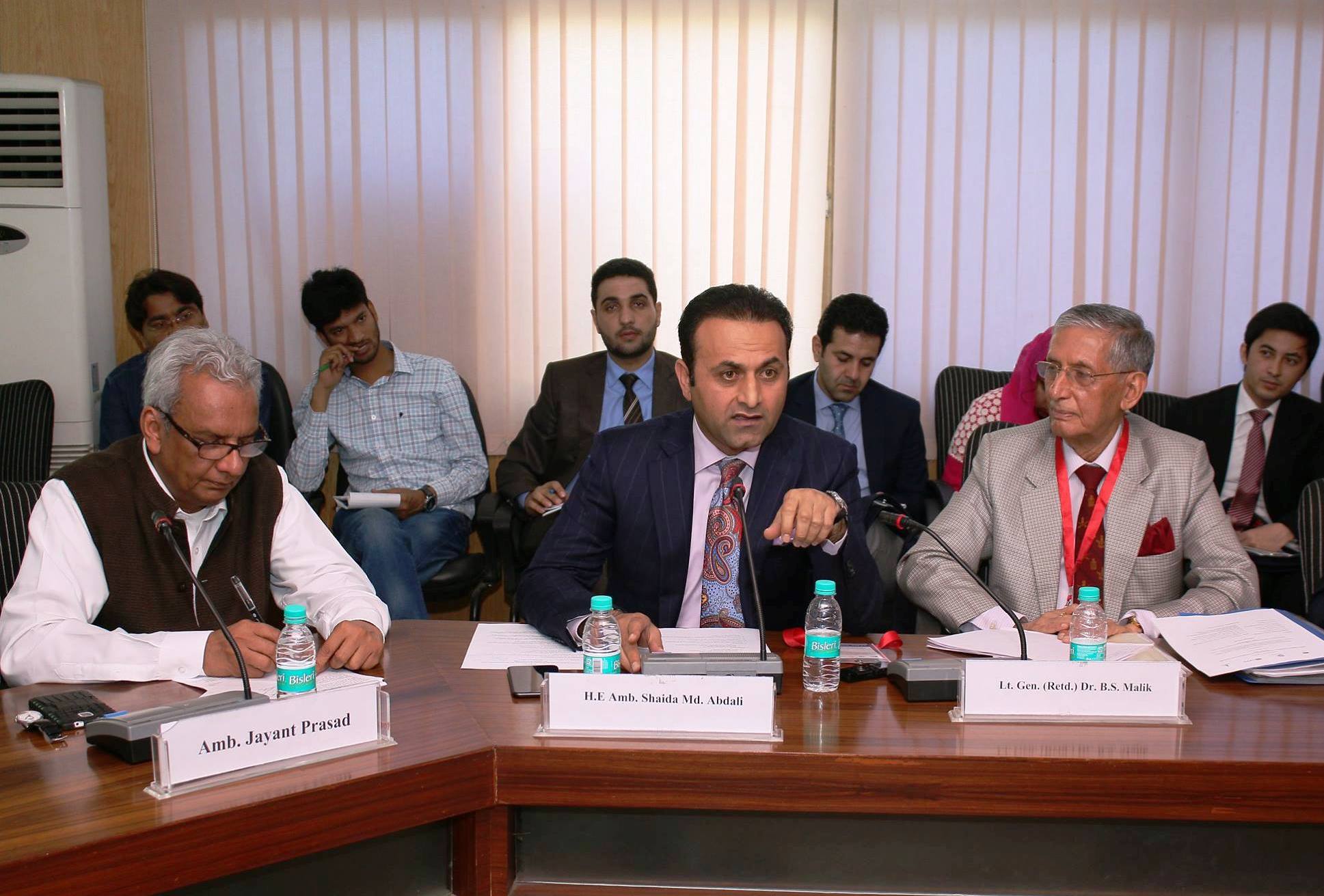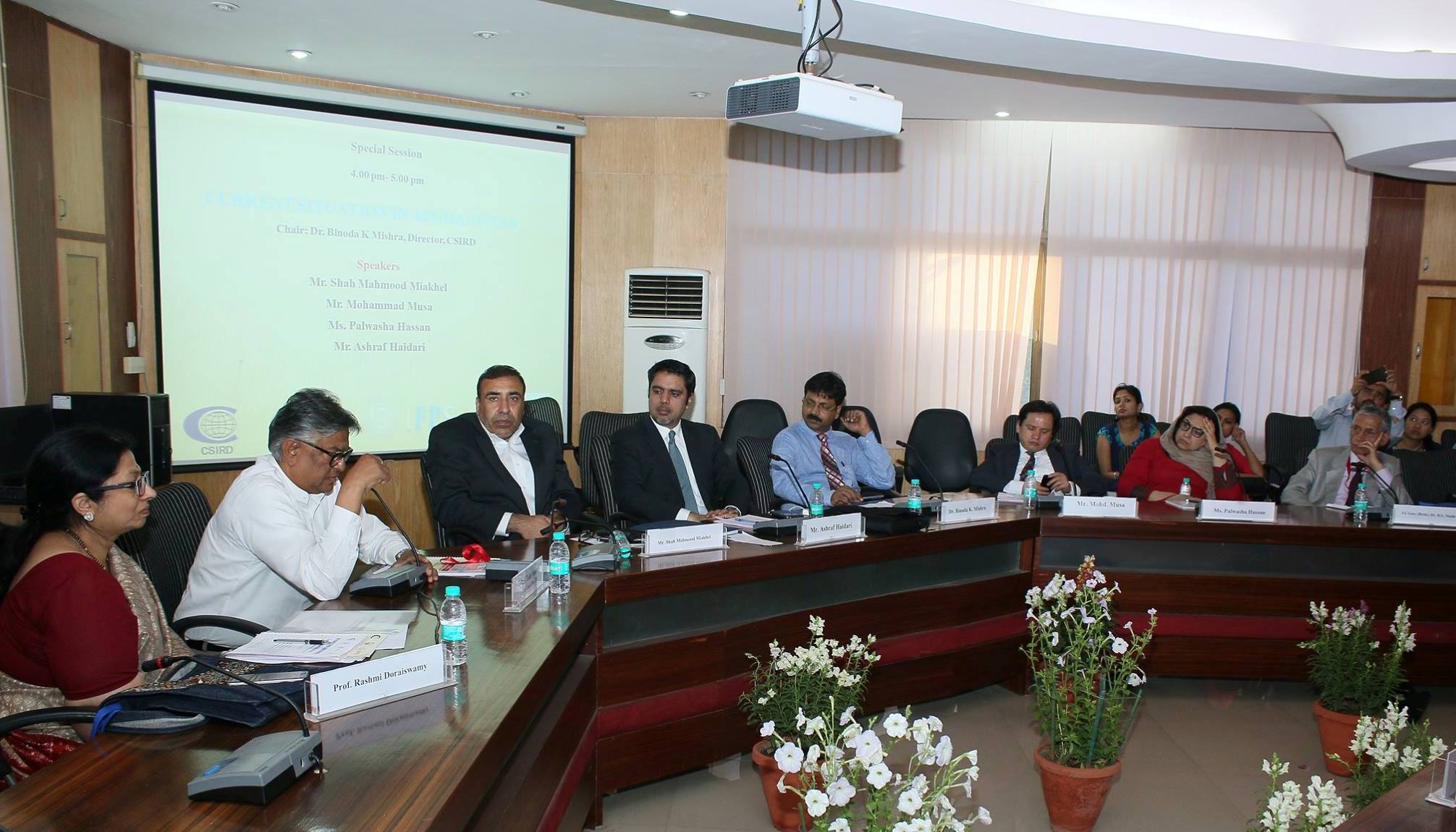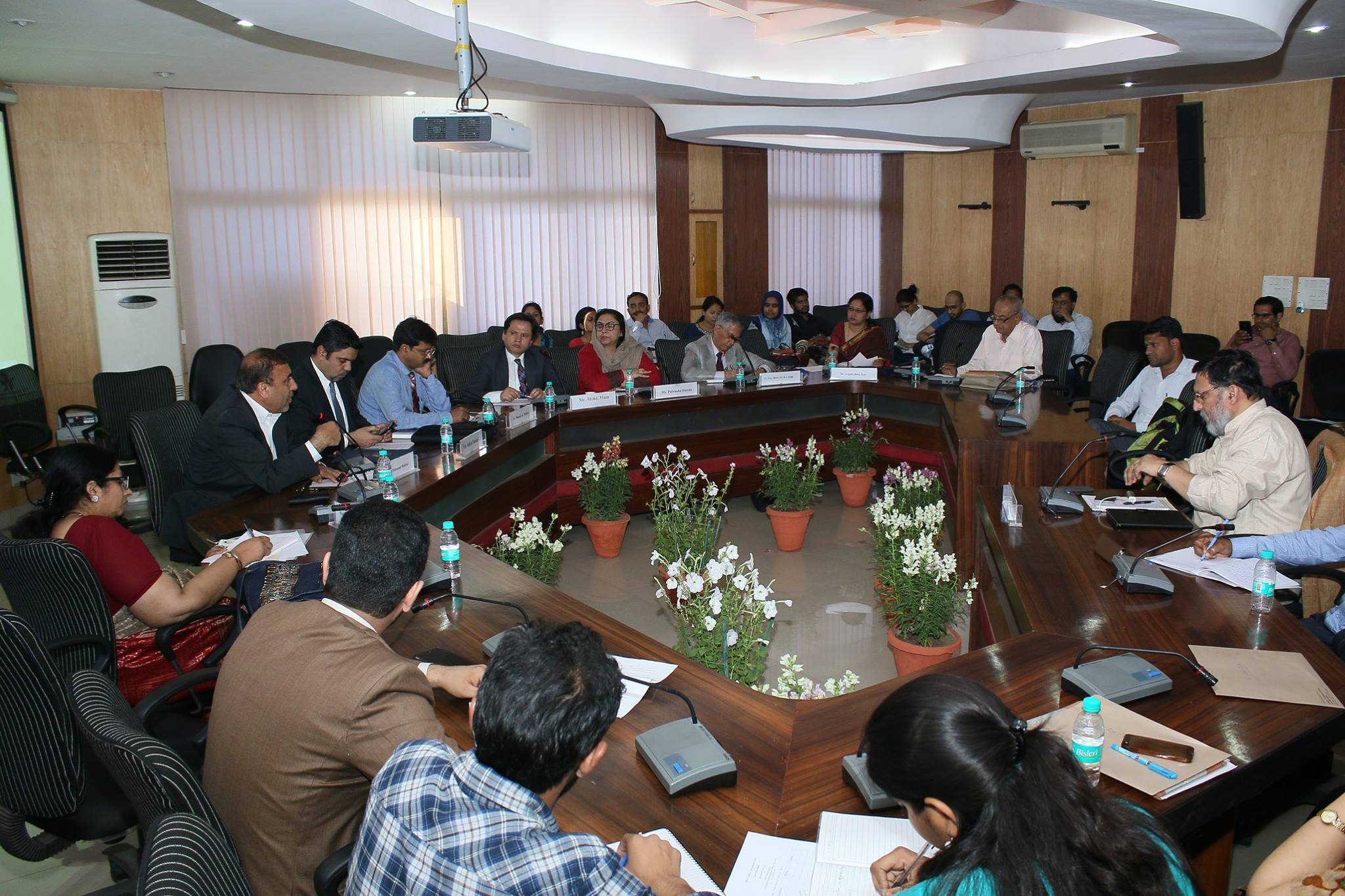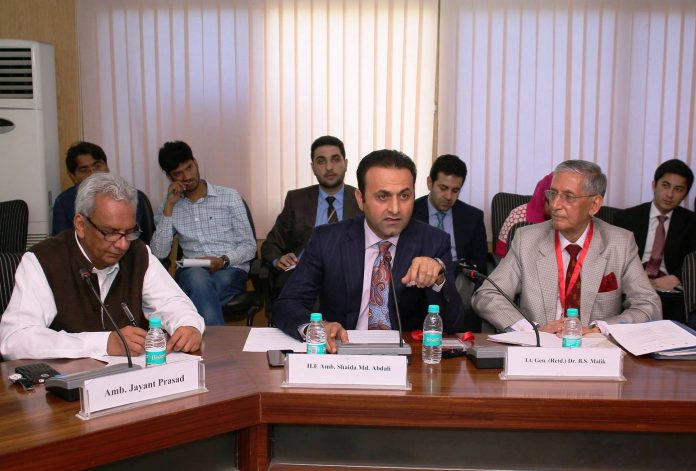By Manzar Imam for Twocircles.net
New Delhi: The Centre for Studies in International Relations and Development (CSIRD), Kolkata and the Academy of International Studies (AIS), Jamia Millia Islamia (JMI), in collaboration with the Institute of Foreign Policy Studies (IFPS), University of Calcutta and the Indian Council of Social Science Research (ICSSR), Eastern Regional Centre Kolkata, organised a two-day international conference on “Indo-Afghan Relations: Evaluating the Development and Strategic Partnership” on 21-22 March, 2017 at AIS, JMI. Members of academia, government representatives including diplomats and other policy practitioners of the two countries dwelt on a range of bilateral and multilateral issues related to India and Afghanistan and the region.
Speaking at the inaugural session, Shaida Mohammad Abdali, Ambassador of Afghanistan to India said that Afghanistan and India shared centuries-old civilisational links and Afghanistan valued India and the assistance that it gets from India. He said that Afghanistan’s partnership with India was transitioning from dependency to a strategic one. He informed that presently over 1,60,000 Afghan students were studying in India.
At the Special Session on Indo-Afghan Relations, Mr Asraf Haidari, Director General of Policy & Strategy, Ministry of Foreign Affairs of Afghanistan highlighted Afghanistan’s engagement with India calling it a “shared interest”. In a lighter note he mentioned that about $75 million was being spent every month by Afghans into medical treatments in India. Haidari underscored Afghanistan’s importance in giving India “opportunities in our markets” and “connecting India with the markets of Central Asia”.

He took exception to some neighbouring countries’ selective use of terrorism as good or bad stating that “There should be no distinction between good terrorists and bad terrorists”. We are a region and Asia can prosper only through peaceful manner. Haidari asked the regional stakeholders to “focus on cooperation against confrontation” to ensure peace, security and stability throughout Asia at the centre of which is located Afghanistan.
While examining the strategic relationship between Afghanistan and India, Shah Mahmood Miakhel, Director of the United States Institute of Peace, Kabul maintained that the partnership between the two countries was on broader development policies and the Indian aid was mainly used in three activities: Line of credits, capacity building activities and Grants Assistance projects, all of which had certain political influence as well certain economic, diplomatic and strategic objectives.
Prof. Gulshan Sachdeva of Jawaharlal Nehru University ruled out a comeback of the Russian factor. The fact that geostrategically a new dynamic has been added and new actors are emerging needs to be considered. In order to achieve the desired objectives, India needs to do much more, he noted.
Ms Palwasha Hassan, Executive Director of Afghan Women’s Education Centre viewed India’s symbolic and strategic interventions as helping for the development in Afghanistan. She however was disappointed with the fact that whenever the two countries got closer it was perceived negatively and therefore, she suggested that “the development interventions cannot be separated from strategic partnership”. She also stressed on the need for exploring relations between India and Russia for the kind of role India should be playing in Afghanistan. About India’s role in furthering the cause of gender justice and women’s participation in peace processes, Ms Hassan, who is also the founding member of Afghan Women’s Network, said that India wasn’t doing that well despite its limited role though SEWA and also because India itself stood among the low raking countries for the same reason for which Afghanistan stood at among the lowest in the world.

So far as women’s participation is concerned, Ms Hassan said that women in Afghanistan have come a long way from the time of Taliban with total social exclusion. We are one year after Britain and one year before America in giving women the right to vote. Continuous conflict had exacerbated the condition of women though, she said.
Basing his arguments on historian Ibn Khaldun’s notion of Asabiya, Dr Mohammad Sohrab considered the presence of the US in Afghanistan unjustifiable whereas other participants viewed it differently. He described Afghanistan as the Heart of Asia which was full of natural resources. Prof. Sanjay Pandey of JNU discussed India’s ambivalence about the China-Pakistan Economic Corridor (CPEC) stating that India’s unwillingness to join CEPC was due to the fact that that the route that China is building India claims it to be its own.
The Afghanistan of 2017 is a lot more different from the Afghanistan of the past, most of the Afghan panelists noted. They maintained that the present Afghanistan was a transformed one. Mohammad Musa, Executive Director, Afghanistan Independent Human Rights Commission, said Afghanistan has transformed as we have “good connectivity”, 3G network and freedom of assembly, association and movement which was earlier either denied or restricted. What we don’t have is the “power transition” as we are still facing a very difficult situation in terms of political stability.
He drew attention to the fact that some of the international forces were not respecting human values, Islamic values. He said that a dirty game was being played to link ISIS with Afghanistan, something which is a threat to the progress and stability of peace in the country. “ISIS don’t have any roots in Afghanistan”, said he. In her paper on China’s Interest in the Economic Initiatives around Afghanistan, Saheli Chattaraj said that China shared border as well as concerns of terrorism and it was interested in its untapped resources.
Earlier in his keynote address, Amb. Jayant Prasad, Director General of Institute of Defense Studies and Analyses talked about India’s strategic partnership with Afghanistan through short-term objectives to ensuring long-term stability. JMI Vice Chancellor Prof. Talat Ahmad hoped that the outcome of the conference would be useful for policy makers.
India’s engagement during the last two decades has been “very serious”, said Shakti Sinha, director of Nehru Memorial Museum and Library. Afghanistan is a very young country, physically exposed to the world. In his valedictory address, Sinha suggested not to stereotype Afghanistan. There is ethnicity, but “don’t overplay it”. It has been a gateway, traditionally, economically and politically.

Sinha also tried to demystify certain myths like calling Kandahar as Gandahar. He called not to confuse soft power with hard power. India’s interest comes from the convergence of strategy whereas the greatest fear of Pakistan is two flourishing democracies in its two sides.
Prof. Tasneem Meenai, Dean, Student’s Welfare, Prof H.S. Vasudevan, Lt. Gen.(Retd) Dr B.S. Malik, President, CSIRD, Dr Binoda K Mishara, Director, CSIRD, Prof. J.K. Ray chaired different sessions and shared their insights. Amb. I.P. Khosla, Dr D. K. Giri, Brig Gurmeet Kanwal, Dr. Sabiha Alam, Dr Angira Sen Sarma, Dr Aliva Mishra, Chayanika Saxena, Dr Munir Alam, Dr Safia Mehdi, Dr Raghav Sharma, K.N. Tennyson also presented papers on different aspects.
Prof. Rashmi Doraiswamy, Director, AIS and Dr Arpita Basu Roy of CSIRD thanked the participating institutes especially the Afghan delegates for their contribution.
The author is a Ph.D. student at the Academy of International Studies, Jamia Millia Islamia and is also doing an online research program on “Advancing scientific and theological literacy in madrasa discourses” of the University of Notre Dame, Indiana, USA


